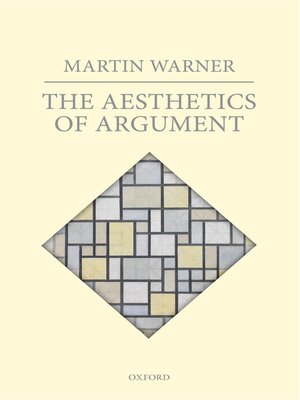
Sign up to save your library
With an OverDrive account, you can save your favorite libraries for at-a-glance information about availability. Find out more about OverDrive accounts.
Find this title in Libby, the library reading app by OverDrive.



Search for a digital library with this title
Title found at these libraries:
| Library Name | Distance |
|---|---|
| Loading... |
Argument and imagination are often interdependent. The Aesthetics of Argument is concerned with how this relationship may bear on argument's concern with truth, not just persuasion, and with the enhancement of understanding such interdependence may bring. The rationality of argument, conceived as the advancement of reasons for or against a claim, is not simply a matter of deductive validity. Whether arguments are relevant, have force, or look foolish—or whether an example is telling or merely illustrative—cannot always be assessed in these terms. Martin Warner presents a series of case studies which explore how analogy, metaphor, narrative, image, and symbol can be used in different ways to frame one domain in terms of another, severally or in various combinations, and how criteria drawn from the study of imaginative literature may have a bearing on their truth-aptness. Such framing can be particularly effective in argumentative roles which invite self-interrogation, as Plato saw long ago. Narrative in such cases may be fictional, whether parabolic or dramatic, autobiographical or biographical, and in certain cases may seek to show how standard conceptualizations are inadequate. Beyond this, whether in poetry or prose and not only with respect to narrative, the "logic" of imagery enables us to make principled sense of our capacity to grasp imagistically elements of our experience through words whose use at the imaginative level has transformed their standard conceptual relationships, and hence judge the credibility of associated arguments. Assessment of the argumentative imagination requires criteria drawn not only from dialectic and rhetoric, but also from poetics.







